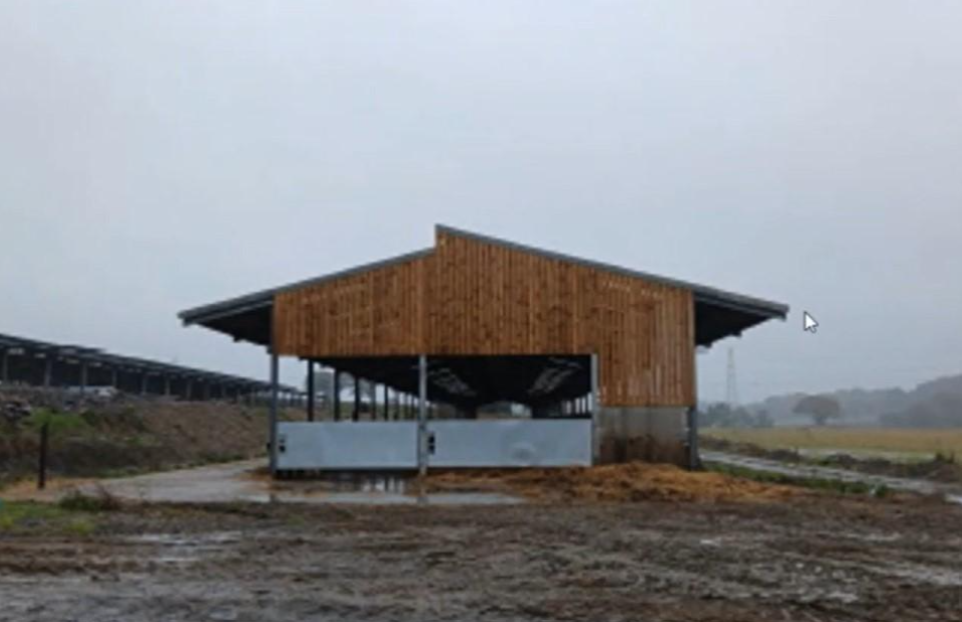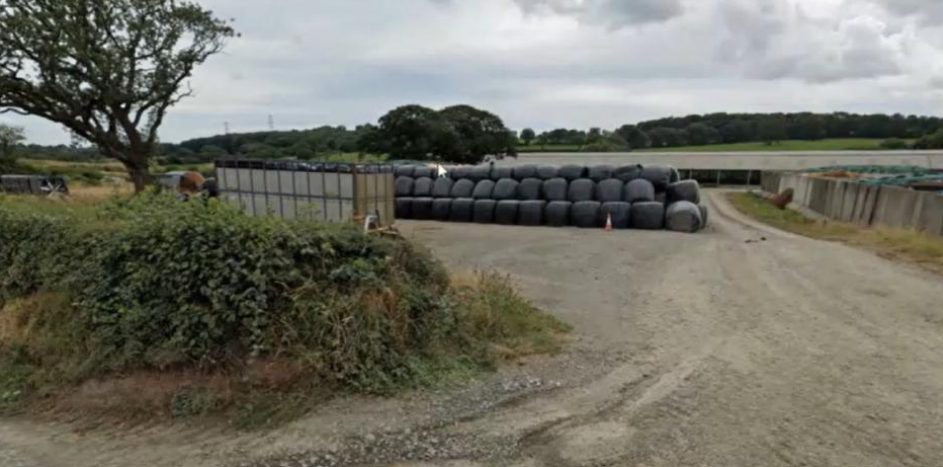Farming
FUW: ‘Support Welsh and British beef’

 FUW president Emyr Jones has written to UK supermarkets reiterating the need to support Welsh and British beef through loyalty and sustainable prices. Speaking at this weekend’s Royal Welsh Spring Festival, Mr Jones said ‘Falling cattle prices experienced over the first quarter of 2014 raised significant concerns within the cattle industry and it had been hoped that prices would return to more sustainable levels as the year went on. ‘However, the continuing fall over the past six weeks has led to our offices being inundated with calls from farmers who are not only losing money due to the low prices but also due to cancelled slaughterhouse bookings.’ Mr Jones there was growing frustration and anger within the industry and the fall in cattle prices was undermining much-needed confidence at a time when it was in the interests of all those involved in the supply chain to secure long term commitments from the industry. ‘There is also real anger about the proportion of imported meat which is coming on to the UK market, undermining prices and reducing throughputs in our abattoirs,’ said Mr Jones. According to the latest EBLEX/ AHDB figures, average beef retail prices have not followed the downward trend experienced by farmers, meaning the gap between farm gate and retail prices has widened. ‘Such factors are severely undermining confidence in the long term viability of an industry, the nature of which requires a long term commitment from breeders, store producers and finishers. Failure to secure such commitment by providing sustainable prices for cattle should be a major concern for all those within the supply chain Mr Jones’ letter states. Mr Jones has urged supermarkets to commit to the procurement of Welsh and British beef, and to ensuring prices paid by suppliers or through direct contracts are such that confidence is revived to the extent which is now needed. ‘None of us wants to see a return to the type of conditions which prompted direct action against imports in the 1990s.’ added Mr Jones.
FUW president Emyr Jones has written to UK supermarkets reiterating the need to support Welsh and British beef through loyalty and sustainable prices. Speaking at this weekend’s Royal Welsh Spring Festival, Mr Jones said ‘Falling cattle prices experienced over the first quarter of 2014 raised significant concerns within the cattle industry and it had been hoped that prices would return to more sustainable levels as the year went on. ‘However, the continuing fall over the past six weeks has led to our offices being inundated with calls from farmers who are not only losing money due to the low prices but also due to cancelled slaughterhouse bookings.’ Mr Jones there was growing frustration and anger within the industry and the fall in cattle prices was undermining much-needed confidence at a time when it was in the interests of all those involved in the supply chain to secure long term commitments from the industry. ‘There is also real anger about the proportion of imported meat which is coming on to the UK market, undermining prices and reducing throughputs in our abattoirs,’ said Mr Jones. According to the latest EBLEX/ AHDB figures, average beef retail prices have not followed the downward trend experienced by farmers, meaning the gap between farm gate and retail prices has widened. ‘Such factors are severely undermining confidence in the long term viability of an industry, the nature of which requires a long term commitment from breeders, store producers and finishers. Failure to secure such commitment by providing sustainable prices for cattle should be a major concern for all those within the supply chain Mr Jones’ letter states. Mr Jones has urged supermarkets to commit to the procurement of Welsh and British beef, and to ensuring prices paid by suppliers or through direct contracts are such that confidence is revived to the extent which is now needed. ‘None of us wants to see a return to the type of conditions which prompted direct action against imports in the 1990s.’ added Mr Jones.

Business
Langdon Mill Farm Pembrokeshire expansion signed off

THE FINAL sign-off for plans for a heifer accommodation building and associated works at one of Pembrokeshire’s largest dairy farms, with a milking herd of 2,000 cows, have been given the go-ahead.
In an application backed by councillors at the December meeting of Pembrokeshire County Council’s planning committee, Hugh James of Langdon Mill Farms Ltd sought permission for a 160-metre-long heifer accommodation building, a slurry separation/dewatering building and associated yard areas at 1,215-hectare Langdon Mill Farm, near Jeffreyston, Kilgetty.
A supporting statement through agent Reading Agricultural Consultants said: “The holding currently has a milking herd of approximately 2,000 cows, which are housed indoors for the majority of the year, with dry cows and heifers grazed outdoors when weather and soil conditions permit.

“There has been significant investment in buildings and infrastructure at the farm over the last decade in respect of cattle accommodation, slurry storage, milking facilities, Anaerobic Digestion (AD) plant, feed storage. Recently a calf and weaned calf accommodation buildings were approved by Pembrokeshire County Council with construction almost complete.
“The unit is efficient, achieving yields of more than 10,000 litres/cow/year, with cows being milked three times/day in the 60-point rotary parlour. Langdon Mill Farm currently directly employs 21 full-time, and three part-time staff. Of these, four live on site in the two dwellings opposite the farm, with the remaining staff living in the locality.”
It added: “Although the unit has previously purchased heifers to aid expansion, the farm now breeds most of its own replacements to improve genetics and to minimise the ongoing threat of bovine tuberculosis (bTB).”
It said the proposed building would be used by heifers between the ages of 7-22 months, the siting “directly influenced by the adjacent calf and weaned calf buildings, with livestock being moved from one building to the next as they get older”.
Members unanimously supported the recommendation of approval, giving delegated powers to the interim head of planning to approve the application following the final approval of a habitats regulations assessment.
An officer report published yesterday, February 5, said Natural Resources Wales confirmed it had received the assessment, and, “in consideration of the mitigation measures detailed and on the understanding there is no increase in stock, they agree with the LPA’s conclusion that an adverse effect upon the integrity of the SAC [Special Areas of Conservation] sites can be ruled out”.
Formal delegated approval has now been granted by officers.
Farming
Forgotten meats tipped as future ‘superfood’ comeback

SO-CALLED “forgotten meats” such as liver, heart and kidneys could soon find their way back onto dinner plates, with scientists suggesting they may offer a cheap, sustainable and highly nutritious alternative to modern ultra-processed foods.
Offal was once a staple of everyday diets across the UK, particularly in working-class households, but has steadily fallen out of favour in recent decades despite being rich in iron, protein and essential vitamins.
Now researchers at Aberystwyth University are working with Hybu Cig Cymru (HCC) to understand why demand has dropped and whether these cuts could be repositioned as affordable “superfoods”.
Scientists say that when nutrient-dense parts of the animal go uneaten, valuable food is effectively wasted.
Dr Siân Mackintosh, from the university’s Institute of Biological, Environmental and Rural Sciences (IBERS), said these meats could play an important role in healthier and more sustainable diets.
“Where they are not being used, these nutrient-dense ‘forgotten meats’ represent a significant loss of nutrients from our food chain,” she said. “Incorporating them as part of a balanced diet could support human health while also reducing food waste and improving environmental outcomes.”
Taste tests win over public
To test public attitudes, HCC staff have been running tasting sessions at major agricultural events including the Royal Welsh Show and the Winter Fair in Llanelwedd.
Visitors sampled dishes made with Welsh lamb’s liver, including stroganoff, traditional faggots and pâté. Organisers say many people were surprised by the flavour and keen to learn how to cook them at home.
Dr Eleri Thomas, Future Policy and Project Development Executive at HCC, said interest was stronger than expected.
“We believe there is significant potential for these forgotten meats to be incorporated back into our diets,” she said. “Consumers liked the flavour and wanted recipes and cooking tips, as well as understanding the nutritional value.”
She added that making better use of undervalued cuts could improve sustainability across the meat supply chain while creating new marketing opportunities for Welsh producers.
Part of wider sustainability project
The work forms part of the SMART Nutrient Cymru project, funded through the Welsh Government’s innovation support scheme.
Project lead Dr Christina Marley said the aim is to capture nutrients currently being lost across the agri-food system.
Alongside the collaboration with HCC, the team has also partnered with Dŵr Cymru Welsh Water on land management to protect rivers, and with British Wool to explore new uses for fleece by-products.
IBERS itself is one of eight UK research institutes strategically supported by Biotechnology and Biological Sciences Research Council, providing national expertise in grassland and plant breeding science.
Researchers say that with food prices rising and pressure growing to reduce waste, traditional nose-to-tail eating could offer both economic and environmental benefits.
Image: Welsh lamb faggots (Pic: HCC)
Community
Celebrating nature recovery through Cysylltu Natur 25×25

A CELEBRATION event was held on Saturday, January 24 in Cwm Gwaun to mark the achievements of Pembrokeshire Coast National Park Authority’s Cysylltu Natur 25×25 project, bringing together volunteers, farmers and staff involved in delivering nature restoration across North Pembrokeshire.
The landscape-scale project was funded by the Welsh Government through the Nature Networks Programme, delivered by the Heritage Fund. The Programme aims to strengthen ecological connectivity and resilience by restoring habitats at scale.
Those attending the event heard about the wide range of conservation activity delivered through the project across the north of the National Park. This has included practical works to restore grazing to Rhos pasture to benefit marsh fritillary butterflies and southern damselflies, specialist work to conserve rare lichens, volunteer chough, dormouse and harvest mouse monitoring, safeguarding greater horseshoe bat hibernation sites, and targeted action to tackle invasive species threatening important sites.
Volunteers, farmers, land managers and contractors played a vital role in the success of the project, contributing local knowledge, practical skills and ongoing commitment to caring for Pembrokeshire’s unique landscapes and wildlife in the long term.
Mary Chadwick, Conservation Officer for Pembrokeshire Coast National Park Authority, said: “Cysylltu Natur 25×25 has shown what can be achieved when farmers, volunteers and conservation specialists work together with a shared aim.
“From monitoring some of our most elusive species to restoring and protecting habitats, the dedication of everyone involved has made a real difference for nature across the National Park.”
Although the Cysylltu Natur 25×25 project is now coming to an end, the important work it has supported will continue. Building on its successes, Pembrokeshire Coast National Park Authority will carry this momentum forward through the next phase of nature recovery work under NNF4 Cysylltiadau Naturiol / Naturally Connected, ensuring ongoing protection and enhancement of habitats for future generations.
-

 Health4 days ago
Health4 days agoHealth board targets rise in steroid and gym drug use across west Wales
-

 Crime5 days ago
Crime5 days agoSex offender jailed after living off grid in Pembrokeshire and refusing to register
-

 News6 days ago
News6 days agoPrincess of Wales visits historic Pembrokeshire woollen mill
-

 Crime4 days ago
Crime4 days agoTeacher injured and teenager arrested for attempted murder at Milford Haven School
-

 Crime6 days ago
Crime6 days agoHakin man’s appeal delayed again as Crown Court seeks guidance on insurance law
-

 Crime7 days ago
Crime7 days agoArrest made after Carmarthen park stabbing investigation
-

 Crime5 days ago
Crime5 days agoJohnston man remanded in custody over knife and assault charges
-

 Crime7 days ago
Crime7 days agoMan guilty of threatening to kill Herald editor

























viviana hicks
October 9, 2025 at 3:23 am
I can’t wait to share this with others. Enjoy ptv live streaming — live cricket, football, and more. fast, reliable HD streaming. post‑match shows, expert commentary. low‑latency playback.
oqaflwzw
February 4, 2026 at 5:52 am
https://askoff.ru
Enriquecix
February 4, 2026 at 4:02 pm
art student league of new york [url=https://otvetnow.ru]https://otvetnow.ru[/url] free unlimited cloud
fumsaxxc
February 4, 2026 at 10:34 pm
https://asklong.ru